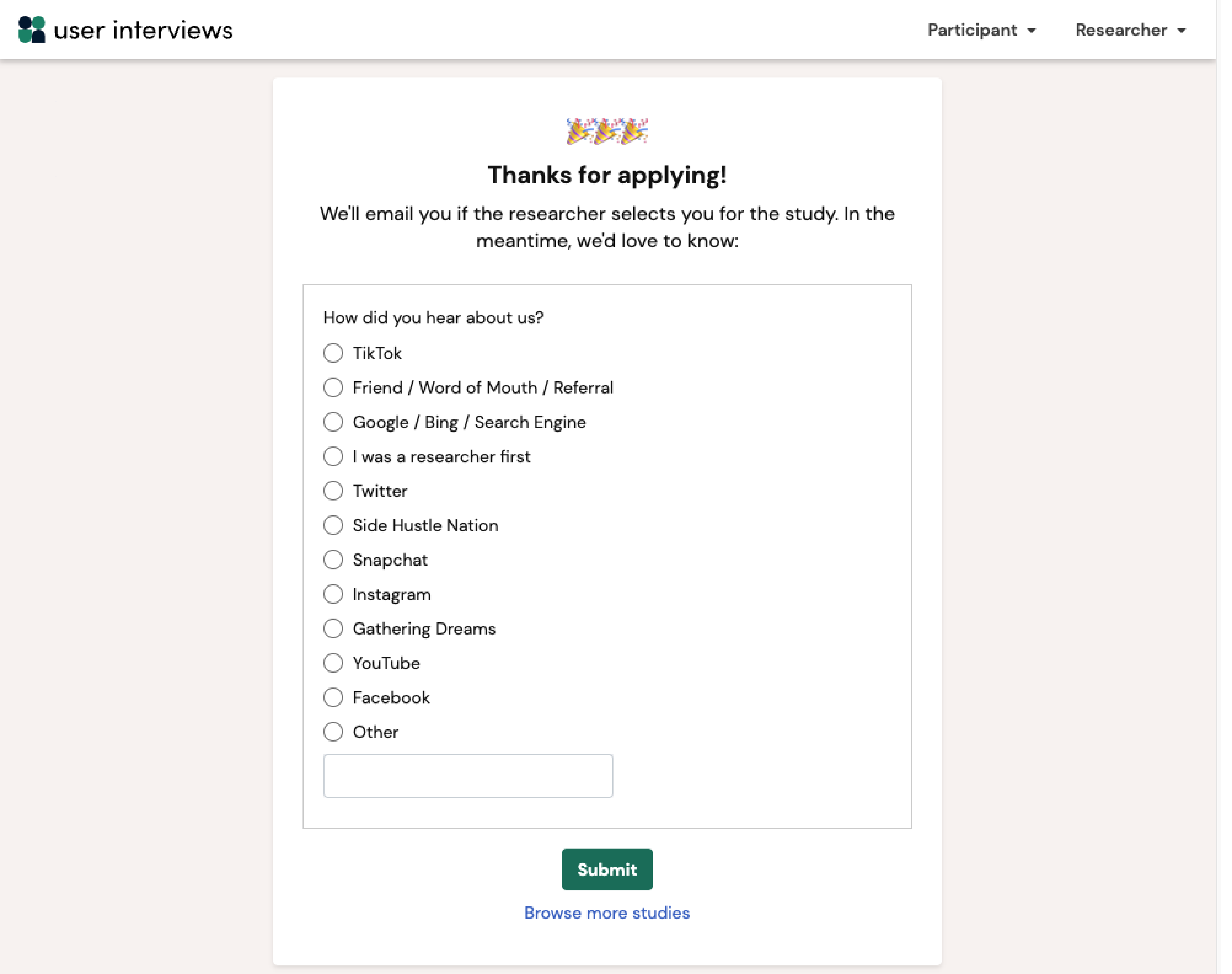Most companies agree that user experience is important. In a 2019 report from UserZoom, 70% of enterprise CEOs said that they see user and customer experience as a competitive differentiator. But figuring out what exactly users want — and what frustrates them — can prove to be a challenge. Customer satisfaction and market research surveys have response rates ranging around 10% on the low end, and many user experience researchers say that they don’t have enough time for analysis of the results.
The demand for a solution has led to a wellspring of software-based user research tools, like UserLeap, Airkit and UserZoom. Platforms such as Great Question and Ribbon seek to simplify the process of interviewing customers about product ideas and strategy, while services like Sprig and Maze let product teams observe how users interact with a product and generate reports.
Another player in the highly competitive market is User Interviews, which focuses on the problem of user research recruiting. Co-founded by Dennis Meng, Bob Saris and Basel Fakhoury, the idea for User Interviews arose from a mobile travel app that wasn’t getting a lot of traction.
“As we tried to pivot and find a new idea, we began to do a lot of user research to validate our hypotheses,” Fakhoury, who serves as User Interviews’ CEO, told TechCrunch in an email interview. “The more research we did, the more passionate we were about how valuable research could be and realized there was a huge pain point around finding participants for studies. We then did more research to validate this opportunity and were blown away by how strong the signal was: participant recruiting is the most painful part of user experience research by a mile.”
And the stakes of letting customer research efforts fall through, whether because of recruitment-related reasons or otherwise, can be high. According to an Adobe study, 38% of people will stop engaging with a website if images won’t load or take too long. Clicktale reports that 73% of brands can’t provide a consistent experience across their different digital channels, hurting customers’ impressions of the brands.
User Interviews — which today closed a $27.5 million Series B round that brings the company’s total raised to around $45 million — offers two products aimed at addressing this pain point. One, called Recruit, is designed to help user experience researchers source study participants across different demographics and behavioral criteria. The other, Research Hub, serves as a customer relationship management tool for research teams, allowing them to build user panels for research while streamlining the logistics of getting customers into studies.

Anyone can sign up to participate in a User Interviews-facilitated survey; more than 2.4 million have signed up to date. Once a user creates a profile, they can apply to a study, after which a researcher will approve or deny their admission. Surveyors can choose to “double screen” participants, which might involve contacting users to have them sign an NDA or consent form, and they can opt to reward participants with gift cards and other forms of monetary compensation (usually amounting to between $50 and $200).
That pay range is on the higher end for customer survey portals, but some recent participant reviews of the User Interviews experience on TrustPilot aren’t especially positive. We’ve reached out to the company for more information about why that might be.
According to Fakhoury, User Interviews uses machine learning models to prevent and identify survey fraud. In a support page on its website, the company says that of the roughly 50,000 participants active on its platform each month, around 0.3% — ~150 — are flagged as suspicious.
“With Recruit, Research Hub and a growing suite of integrations, User Interviews is differentiated as a complete solution for participant recruitment and management that plays nicely with any tools researchers like to use for their testing and insights management needs,” Fakhoury said. “We are faster, cheaper and more flexible than established recruiting agencies and our speed, cost and intuitive user experience have opened quality research recruiting to new audiences, like product managers and user experience designers, who previously would try to ‘DIY’ their research recruiting with poor results.”
Fakhoury didn’t reveal revenue figures when asked. But he said that User Interviews currently counts “thousands” of brands in its customer base, including Adobe, CNN, Amazon, Intuit, the Mayo Clinic, Spotify, Pinterest and Citibank.
Sageview Capital led User Interviews’ Series B with participation from Teamworthy, Accomplice, Las Olas VC, Trestle Ventures, ValueStream, ERA’s Remarkable Ventures and FJ Labs. Fakhoury says that the investment will “fuel growth” and help to “further build” the company’s core products.































Comment